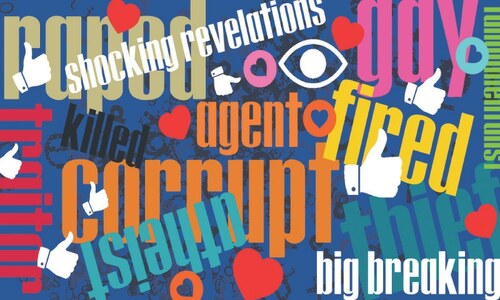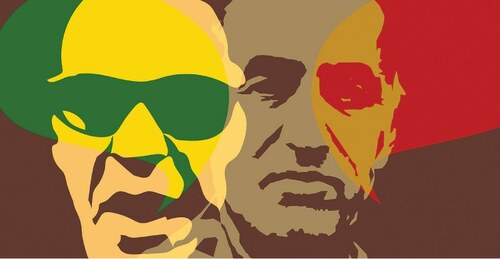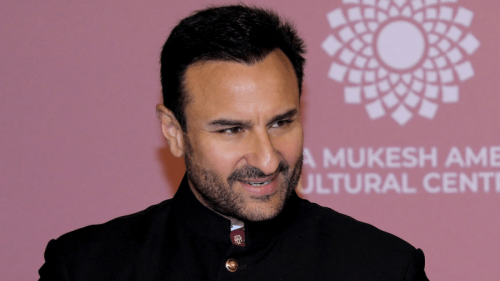Most storylines in myths, films, TV series and novels largely revolve around three characters: the hero, the villain and the victim. In 1968, the American psychiatrist Stephen B Karpman, framed this as the ‘drama triangle.’ But Karpman demonstrated that this triangle is present in real life situations as well, involving real people. What’s more, the people themselves adopt these roles if the roles fulfil their individual social and emotional needs.
For example, if a person in a workplace is struggling to perform, he may take on the role of a victim who’s being pestered by a ‘persecutor’ (probably his boss). The boss, of course, doesn’t see himself as a villain, but may believe that he is surrounded by incompetent employees that need to be micromanaged and dealt with in a stern manner. Then, in comes the person who takes on the role of a hero, ‘rescuing’ the victim (or validating his victimhood) by confronting the persecutor.
However, according to Karpman, such triangular interactions do not resolve problems, because the roles in this regard are mostly adopted to fulfil individual needs. The victim needs to be sympathised with. The hero likes to be needed. And the persecutor wants to be seen as the one who has the most say and power. Therefore, Karpman sees the drama triangle as an unproductive strand of interaction.
Imagine a group of people in an office trying to address a professional problem. The boss zeroes in on the person who is struggling to contribute much to the effort. As a consequence, instead of rectifying what he is being criticised for, the person may begin to sulk as a way to signal his victimhood and attract sympathy.
Individuals often adopt archetypal roles of the victim, hero and villain — not just in fiction but in real life. These roles are exploited by populist leaders to try and temporarily fulfil emotional needs, but they ultimately only perpetuate unresolved issues
One of his colleagues, known for being ‘helpful’ (because he likes to be appreciated and be needed), sees this as an opportunity. He intervenes on the victim’s behalf. But the larger problem that they are all trying to address remains unresolved. This interaction becomes a vicious triangle riddled with emotional entanglements instead of a team working together to crack a problem that is outside an individual’s own emotional/psychological issues and needs.
Drama triangle scenarios only work in fictional settings. In real life, their outcomes are often disastrous. If this model is applied to understand politics in troubled countries, then the following scenario emerges: a nationwide crisis leaves large segments of the polity feeling helpless. They insist the crisis is the doing of uncaring, selfish and corrupt state/government/elites.
The latter, or the perceived villains, try to posit that it is the doing of internal and external forces that need time to be addressed. But at the same time, these ‘villains’ attempt to keep general discontent from boiling over through certain harsh measures.
A politician steps in and begins to loudly voice the anger of the polity. He validates what the polity is thinking or emoting. He promises to rid the people from all that which is causing their misery. People begin to relate to him, turning him into a hero who is willing to stand up to the powers that be.
But, as history has witnessed over and over again — especially during eras of surging populism — the hero is more interested in only receiving outright admiration and constant ego boosts. In fact, he ends up compounding the crisis because he has no plans as such to resolve it. He is a product of the crisis, so why should he? Without the crisis, he will fade away.
This is why, especially populists, continue to proliferate a sense of fear and rhetoric of national decline. They also encourage polarisation. A populist chooses certain volatile groups of ‘victims’, and convinces them that they would remain helpless without him.
He also exaggerates the evilness of the perceived villains and the inevitably of a coming collapse. Meanwhile, the crisis continues to deepen. The victims in this regard, craving sympathy, are left paralysed, constantly wishing for wonders from the hero that never materialise.

Most countries in which populism witnessed a surge in the last 15 years or so are telling examples of the mess created by the political manifestation of the drama triangle. ‘Victims’ feel desperate, full of anger and self-pity and, therefore, are likely to make irrational and reactionary political decisions. This is seen as an opportunity by politicians with an exaggerated sense of self-worth, and a ‘hero/saviour complex.’ They are full of rhetorical energy. But they have no concept of (or any real interest in) formulating rational or even pragmatic ideas.
The perceived villains react by trying to forcibly neutralise the emotional temperatures raised by the rhetorical interaction between the victims and the hero. What’s even more intriguing is that the list of villains continues to grow: from the state, government and established ruling elites, it can go on to also include marginalised segments on racial, religious, sectarian and ethnic grounds. This happens because the crisis remains unresolved and all three characters continue to stubbornly hold their respective positions.
The longer the crisis lasts, the more desperate the victims become. The continual desperation sees the hero and the victims elongate the list of villains — some real, some entirely imaginary. All this greatly limits a society’s capacity to develop a consensus on how best to address a problem as a collective. A collective that can contain differing views, but agrees to work as a consensual unit to resolve a problem that is larger than the views, biases and egos of the differing groups and individuals.
This needs to be understood by men such as Imran Khan, Donald Trump, Narendra Modi and others of their ilk— as well as by their opponents. The people also can’t be excused without them willing to examine their own role as victims. They’re very much part of the drama triangle.
Published in Dawn, EOS, September 15th, 2024














































Dear visitor, the comments section is undergoing an overhaul and will return soon.